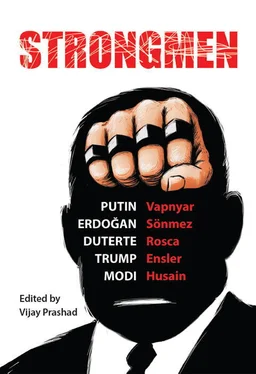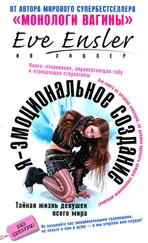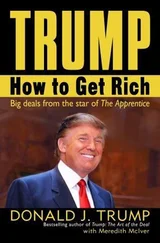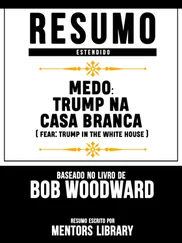Indian society could not withstand the pressure. It cracked during the Ramjanmabhoomi movement in the 1980s and 1990s, when the RSS and the BJP conducted a nationwide campaign to destroy a sixteenth-century mosque in Ayodhya—the Babri Masjid—and build a temple to Ram on that very site. What began with stray protests increasingly amplified into violence, destruction, and even murder. The BJP and RSS, as a practice, always deny any link with violent incidents ex post facto and dismiss the miscreants as fringe elements. But the associations are stark, documented, palpable to all and sundry. And over the years the fringe elements have become mainstream and have gone on to hold important government offices. For example, current Chief Minister of Uttar Pradesh Yogi Adityanath was once seen as no more than a rabble-rousing priest. The hooligans of the past are now the rulers of the country.
Anything that does not mirror their vision of Indian society is to be silenced. The list is long and painful. The paintings of the artist M.F. Husain were torn, his exhibitions desecrated. Husain had to flee from his beloved homeland and die—heartbroken—in London. Cinema halls are attacked if certain films do not meet the RSS test (although movie moguls are astute—they pay the organizations or cut their own films to get past the RSS censors). This is not always possible. Sanjay Leela Bhansali made a film based on the fictional character Padmavati created by the medieval poet Malik Muhammad Jayasi in 1540. A fringe group, Karni Sena, took umbrage at the film, and its members manhandled Bhansali and his team on the film set. They warned him that they would burn every cinema hall that screens the film. Despite being approved by the Censor Board for Film Certification, BJP governments in the states banned the film. So it goes.
Academics and writers who cross the RSS and the BJP face the same kind of wrath. Because the Hindutva groups did not like James Laine’s Shivaji: Hindu King in Islamic India , they vandalized the Bhandarkar Oriental Research Institute in Pune in 2004. A.K. Ramanujan’s masterly essay Three Hundred Ramayanas —which documented the organic growth of a multi-narrative interpretation of the legend of Ram—was dropped from the English literature syllabus by the University of Delhi in 2012. Hindutva trolls attacked Audrey Truschke for her book Aurangzeb , while the Tamil writer Perumal Murugan was harassed for his fabulously inventive stories, and while the Adivasi writer Hansda Sowvendra lost his job for his book The Adivasi Will Not Dance .
Banning is one thing, murder another. The list here is long and painful. Australian Christian missionary Graham Staines and his two young sons were killed by the Bajrang Dal activist Dara Singh. Professor H.S. Sabharwal was beaten to death by activists from the BJP’s student wing (ABVP), while rationalists and leftists Govind Pansare, Narendra Dabholkar, M.M. Kalburgi, and Gauri Lankesh were shot to death. Right-wing thugs did the killings, but there have been no arrests, no real investigation. This, of course, emboldens the right-wing thugs to pursue the underhanded work of their masters.
Matters are so ugly that in September 2017, NDTV anchor Ravish Kumar wrote an open letter to Modi, asking a provocative question. Troll armies on Twitter and WhatsApp—some followed by Modi’s Twitter handle—had attacked Ravish Kumar. They called for his head. Ravish Kumar wrote, “I am making this letter public and sending it to you by post. If you know Nikhil Dadhich, Neeraj Dave and Akash Soni then please ask them that are they or their group planning to kill me?” Matters have reached such an awful place that a major television news anchor must ask such a question of the country’s prime minister.
Savarkar, Hedgewar, Golwalkar—at one time marginal figures—are now in the mainstream. Three men who come from the RSS now hold the three highest positions in the Indian government—president (Ram Nath Kovind), vice president (Venkaiah Naidu), and prime minister (Narendra Modi).
Modi
Modi entered the world of the RSS when he was eight. His father came from a community that traditionally were pressers and sellers of vegetable oil. To support his family, the father ran a tea stall at the local railway station. Across the railway track was a Gujarati medium school where Modi went to school. His teachers remember him as an average student with a keen interest in theater and debate. Modi helped his father at the tea stall and spent his time at the RSS shakha (branch). It was the RSS shakha that took up most of Modi’s time. In his formative years, Modi was being soaked with the ideals of Savarkar and Golwalkar.
At thirteen, Modi was married. When it came time to formally welcome his wife to his house, Modi abandoned everything and vanished for two years. There is no record of these years. When Modi returned home, he said he was wandering in the Himalayas in response to a “higher calling.” The trope of abandonment of wife and children for a higher calling is deeply embedded in the Indian psyche. What may well be interpreted as the relinquishment of responsibility in other cultures could very well be a virtue in some circles.
The hero is always a gifted child, either misunderstood or a misfit. The calling comes at puberty, the rite of passage. The hero embarks on an adventure, a journey filled with insurmountable obstacles, hardship, even humiliation. Once he has made his conquest, the transformation happens. The hero, the individual, dies and what is reborn is the eternal man, the universal man whose solemn task and deed is to return to teach the world a lesson. The hero returns not merely to return, but to regenerate society, to transform it, to lead it into a social Nirvana.
After his return, Modi moved to Ahmedabad where he set up a tea stall near the RSS headquarters. In time, he moved into the RSS headquarters to work as the personal assistant to the chief. Modi entered the Gujarat RSS headquarters at a propitious time. The student agitation of 1974 and the National Emergency of 1975-76 provided the RSS with a new crop of activists, while the kings and princes—who lost their privy purses because Indira Gandhi snatched them away through a constitutional amendment in 1971—began to fund the RSS. This marginal group became socially acceptable. Modi’s responsibilities increased: he was soon taking secretarial roles, opening and reading mail coming to the headquarters. Modi, seen as trustworthy, was sent to Nagpur—the RSS national headquarters—for a one-month officer training camp. He was then made the RSS in-charge for the RSS student front (ABVP) in Gujarat. He was a mentor to the students, like a “vein hidden under the skin.” He was seen as too brash, as too public. But his work as an efficient organizer, getting RSS covert literature to its branches, saved him from repudiation.
When the Janata Party took power in 1977, many of Modi’s senior colleagues became ministers and went to Delhi. Modi saw the opening. He returned to the Nagpur national headquarters for more advanced training and by 1981 was the main liaison between the RSS and all the front organizations in Gujarat. Modi was at the fulcrum of power.
Political power is elusive in the shadows. One needs to come to the surface to enjoy its benefits. Modi’s transition out of the shadows began in 1987, when he was appointed to be the RSS organizational secretary for the Gujarat BJP. Communal friction sparked political gain for the BJP. More tension meant more insecurity meant greater numbers of people flocking to the behemoth for protection and for strength. The BJP organized a series of road shows to strike at the friction—the Nyay Yatra (1987), the Lok Shakti Rath Yatra (1989), and the Gujarat sector of the Ayodhya Rath Yatra (1991). Modi excelled as the organizer of these travelling theaters of hatred and insecurity. He was promoted to run the BJP President Murli Manohar Joshi’s Ekta Yatra (1992) that ran from India’s southern tip at Kanyakumari to Srinagar, the capital of Jammu and Kashmir. These road shows—and the blood left in their wake—raised the profile of the BJP, winning it, in Gujarat, 121 of 182 seats in 1995 (as opposed to eleven seats in 1985).
Читать дальше











